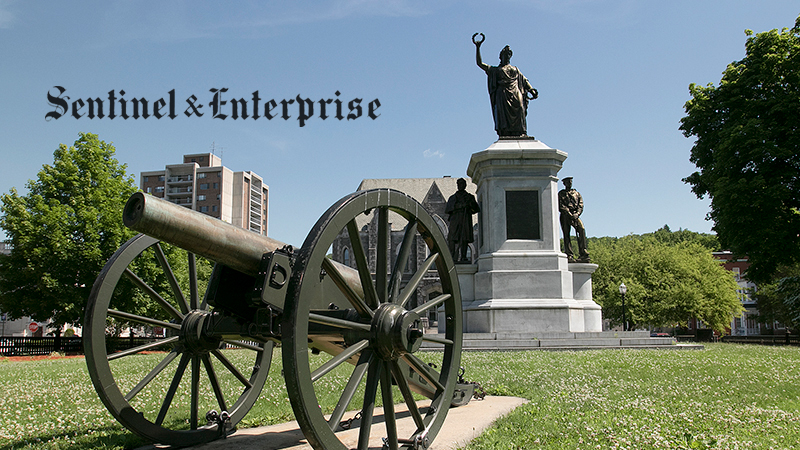Education
Journalism’s Future: Transforming Challenges into Opportunities

As journalism faces a crisis of credibility, students at Fitchburg State University are grappling with the realities of an industry undergoing profound transformation. Many of these students are not aspiring reporters but are studying journalism to understand its societal role. Their skepticism is palpable, especially in light of recent events that have raised questions about the press’s ability to function effectively.
The dissonance students experience stems from witnessing the structural failures of the press, which, over time, has eroded the principles outlined in the First Amendment. They find themselves questioning how a free press, meant to inform and engage the public, has become a source of confusion and disinterest. As they navigate this complexity, the students pose a critical question: If the press is not serving its public purpose, what would it take for it to do so?
This inquiry is particularly relevant given the industry’s long-term challenges. The decline in local news coverage and the rise of sensationalized content have left audiences feeling disenfranchised. Over decades, conglomerates and billionaires have increasingly controlled media outlets, prioritizing profit over the responsibility to educate and serve communities. This shift has led to a situation where the press often fails to meet its fundamental obligations, impacting public trust and engagement.
The issues facing journalism did not emerge overnight. They are the result of systematic neglect and misaligned incentives that have evolved over years. While the industry’s exterior may appear polished, the core has become compromised, leading to a significant loss of community connection. Students observe that while technology has advanced—evident in flashy studios and digital platforms—the essential practice of storytelling has weakened.
In recent discussions, students frequently ask why the current state of journalism should not simply be discarded. Previously, a focus on idealism and historical context guided these conversations. However, recent research and experiences have prompted a shift in perspective. Rather than dismissing the industry’s shortcomings, the approach now emphasizes the potential for transformation.
Wafa Unus, an associate professor of journalism at Fitchburg State University, advocates for viewing the challenges of journalism as compost rather than waste. Composting involves a deliberate process of breaking down what is no longer useful to create something new and valuable. In contrast to landfilling, which conceals problems and fosters decay, composting allows for a meaningful confrontation with the issues at hand.
A landfill symbolizes a civic hazard, normalizing secrecy and distorting information, leaving communities without a reliable foundation of shared facts. Conversely, composting is a proactive method that encourages transparency and accountability. By acknowledging what has gone wrong and addressing it, journalism can begin to restore the nutrients of verification and independence, which are crucial for rebuilding trust with the public.
This concept forms the basis of Unus’s teachings. While skepticism towards the press is justified, indifference poses a more significant threat. The challenge lies not in longing for a bygone era but in recognizing the necessity of evolving practices. The question remains: Should we cling to the familiar, or accept that the current model is outdated and work towards cultivating a healthier ecosystem for local news?
The shift in approach underscores the importance of local stewardship and community involvement in journalism. As the landscape continues to change, it is essential to plant new seeds—smaller, more localized efforts that prioritize the needs and voices of the community. By transforming what is perceived as rot into fertile ground for new growth, journalism can foster a renewed commitment to sustainability and engagement.
The future of journalism rests on the ability to adapt and innovate, creating a space where the stories told resonate with the communities they serve. As students explore these possibilities, they are not just passive observers; they are active participants in shaping the next chapter of journalism.
-

 Technology5 months ago
Technology5 months agoDiscover the Top 10 Calorie Counting Apps of 2025
-

 Technology3 weeks ago
Technology3 weeks agoOpenAI to Implement Age Verification for ChatGPT by December 2025
-

 Health3 months ago
Health3 months agoBella Hadid Shares Health Update After Treatment for Lyme Disease
-

 Health4 months ago
Health4 months agoAnalysts Project Stronger Growth for Apple’s iPhone 17 Lineup
-

 Health4 months ago
Health4 months agoErin Bates Shares Recovery Update Following Sepsis Complications
-

 Technology5 months ago
Technology5 months agoDiscover How to Reverse Image Search Using ChatGPT Effortlessly
-

 Technology3 months ago
Technology3 months agoElectric Moto Influencer Surronster Arrested in Tijuana
-

 Technology5 months ago
Technology5 months agoMeta Initiates $60B AI Data Center Expansion, Starting in Ohio
-

 Technology2 months ago
Technology2 months agoDiscover 2025’s Top GPUs for Exceptional 4K Gaming Performance
-

 Technology5 months ago
Technology5 months agoRecovering a Suspended TikTok Account: A Step-by-Step Guide
-

 Health5 months ago
Health5 months agoTested: Rab Firewall Mountain Jacket Survives Harsh Conditions
-

 Lifestyle5 months ago
Lifestyle5 months agoBelton Family Reunites After Daughter Survives Hill Country Floods





















